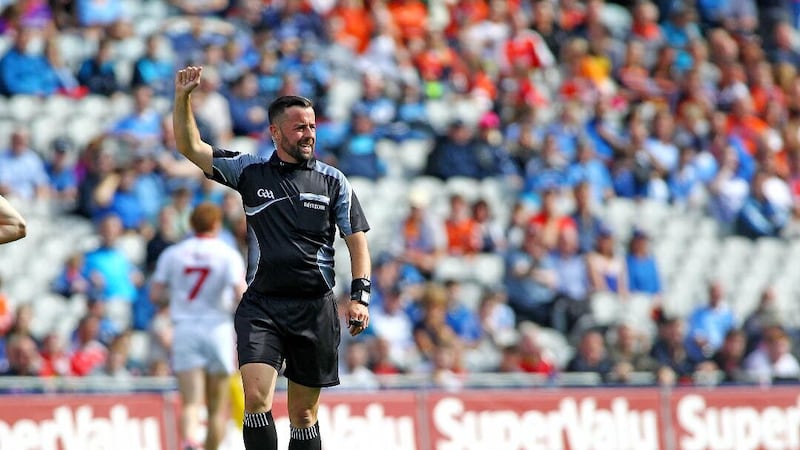Newton Emeron’s article – ‘Still no sign of NHS living with Covid’ (November 5) – is based on significant misunderstandings of the work being done to protect and rebuild non-Covid services.
There is no doubt that the pandemic has had a devastating impact on our hospital services, particularly elective care. Waiting lists have grown and activity has reduced. It isn’t right that any patient should wait longer than is clinically appropriate for surgery and I fully understand the distress that long waiting times cause.
I agree with Newton that we need to ring-fence beds and staff for elective surgery where possible. However, it is wrong to state that we have done nothing to address this. Throughout the pandemic, Trusts have taken steps to separate elective and emergency procedures. Each Trust has streamed its services into scheduled and unscheduled care and ensured that surgery can continue to be provided. At Lagan Valley Hospital we have now created Northern Ireland’s first regional Day Procedure Centre – providing a regional resource for less complex planned day surgery and procedures. Similarly, surgeons from across NI are travelling to the South West Acute Hospital in Enniskillen to provide surgery that cannot be provided at other sites due to the rising numbers of Covid positive inpatients.
Each Trust has published phased rebuilding plans, setting out targets for increasing activities in key areas. I am pleased to confirm that each Trust surpassed its target for the period July to September 2020.
This was in the context of our health service having borne the brunt of the first Covid surge – leaving staff exhausted. In any other walk of life, it would have been natural to wind things down as we moved into summer. Health service staff did not do that, but instead redoubled their efforts to make some inroads into the activity that had been lost due to dealing with the first surge.
In addition to in-house activity, Trusts have been utilising local independent sector capacity. During the period June 29 to October 18, approximately 320 independent sector theatre sessions have been utilised by Trusts, meaning that 1,010 patients have had their procedure undertaken in the independent sector – paid for by the health service.
The pandemic has presented real challenges. Ensuring the correct application of infection prevention and disease control measures reduces the amount of physical space available and increases the time it takes for frontline staff to see and treat patients.
The pandemic has also shone a harsh light on long standing weaknesses in our system. We do not have the workforce, particularly the nursing workforce, to be able to provide elective and unscheduled care at times of pressure. Unfortunately, the rising numbers of Covid-19 inpatients have meant that staff have been redeployed from areas that are not immediately life threatening.
ROBIN SWANN
Health Minister
‘Partition’ is a common factor
There is a difference between celebration and commemoration. Celebration is joyful. Commemoration can be joyful, or sad and sombre, or thoughtful, reflective and introspective.
In 1921 two states came into being on the island of Ireland. The ‘Partition’ of the island and its people was based on a religious head count with the presumption that counties with Protestant majority populations would be pro continued union with UK-GB (at that time by direct rule since the Act of Union in 1801) and that counties with Catholic majority populations would be pro ‘Irish Home Rule’. In the event, both states were given ‘Home Rule’ and the northern (Protestant) state remained in the union.
From today’s perspective, given all that has happened during the subsequent 100 years, in Ireland north and south, in GB, in Europe, and in the wider world, is the centenary of the formation of either state a cause for unilateral celebration or for a more reflective and sombre commemoration?
‘Partition’ is the factor common to both states on the island of Ireland and to the UK. Is the centenary of partition a cause for celebration by any one, or two, or all three of those entities, or a cause for reflective introspective commemoration by all three jointly in the spirit of the Good Friday Agreement which, in essence, created a confederation of the nations and regions of these islands for the common good of all the people, without loss of sovereignty by any part, but which shamefully, and perhaps illegally, has been ignored since its very inception and particularly in relation to two major crises in recent years, namely Brexit and the current Covid pandemic.
1921 saw the partition not only of Ireland but also of the UK. A further partition (and possible dissolution) of the UK is in the offing on the island of GB.
The centenary of 1921 should prompt a reassessment of the relationships within these islands.
A framework exists in the Good Friday Agreement.
DENNIS GOLDEN
Strabane, Co Tyrone
Professing unionism
Unionist Party Party leader Steve Aiken wants an endowed Queen’s University chair named after Edgar Graham, a law lecturer and UUP assembly member shot dead by the IRA in 1983. On that basis, given the quid pro quo that often accompanies these types of suggestions, a simultaneous chair could be endowed in the name of QUB history lecturer Miriam Daley. She was shot dead by the UDA, acting in collusion with British forces, in 1980.
The UUP leader also asserted that QUB should reach out to unionism, in the form of a professorship in unionism, the one named after Graham. Is it implied that she or he would be expected to literally profess unionism?
In the 1980s and 1990s Queen’s was found to be discriminating against Catholics on a significant scale, outlined in Cathal Smyth’s Queen’s University Belfast and the Fair Employment Crisis. Has the situation reversed itself?
As with Donald Trump’s allegations of voting fraud in the US, Mr Aiken should provide evidence for allegations that the ‘unionist community’ is hard done by, vis a vis Queen’s University Belfast.
NIALL MEEHAN
Cabra, Dublin 7
Harshness of lockdowns an open question
Danny Treacy (November 2) accuses me of taking a ‘Churchillian gamble’ in supporting the Great Barrington Declaration. I consider this a great compliment.
Mr Treacy has also gambled but in a different way. He has gambled on there being a vaccine. It appears with the Pfizer vaccine’s 90 per cent success rate this may well be the case. I hope so.
Questions remain as to what the world will look like in the wake of the pandemic. The WHO envoy Dr Nabarro has said there may well be a doubling of world poverty and child malnutrition by next year. Many small businesses, pubs and restaurants that have been driven to the wall risk being replaced by multinational companies. Will we see a repeat of what happened following the 2007 recession where the rich became richer and the poor poorer? And what of the emotional impact on people denied human intimacy and unable to visit their loved ones on their death bed or grieve as a community?
A herd immunity approach was based on a vaccine taking years and so has been shown wanting. But whether the harshness of the lockdowns is justified remains an open question.
DOMINIC GALLAGHER
Glenavy, Co Antrim







